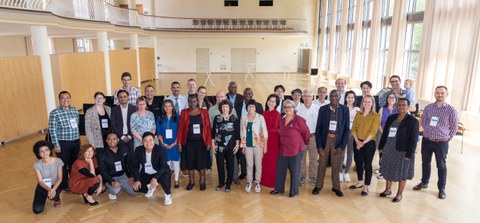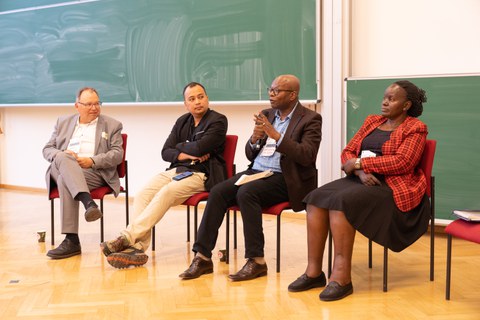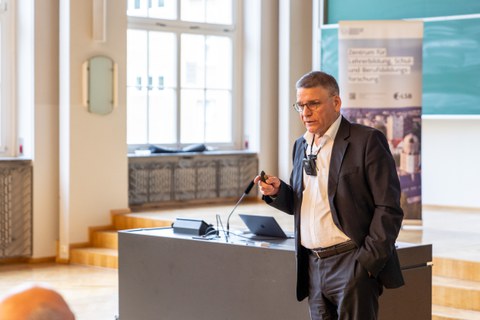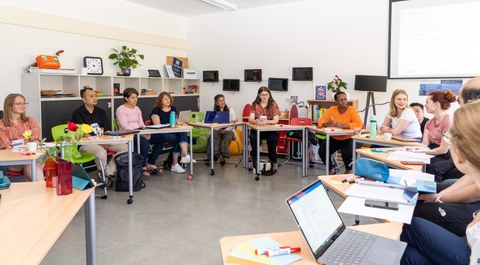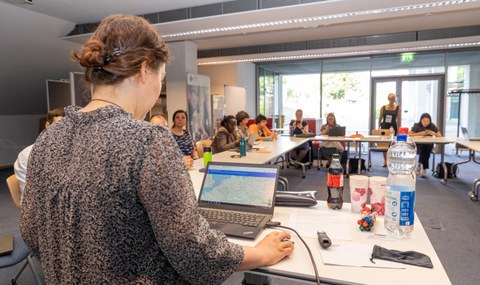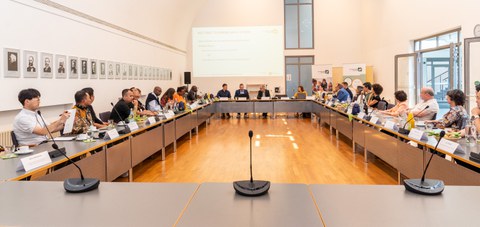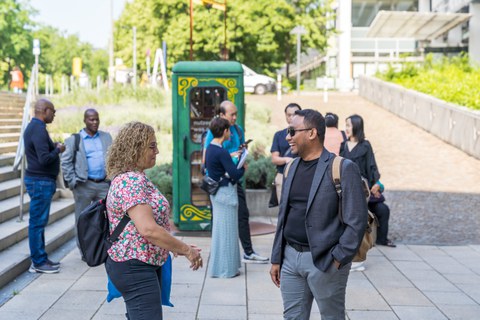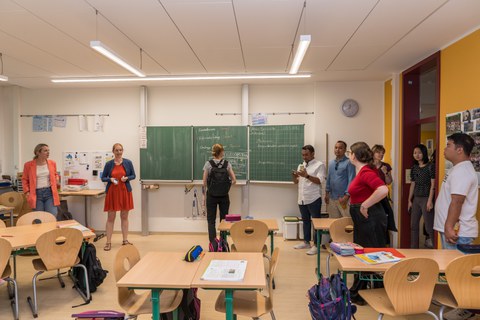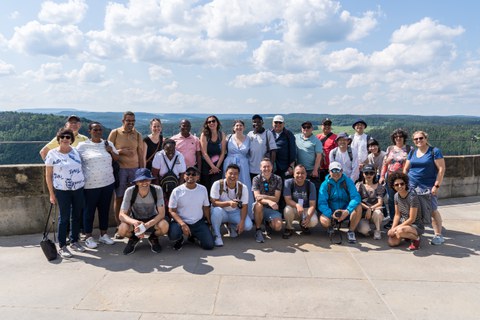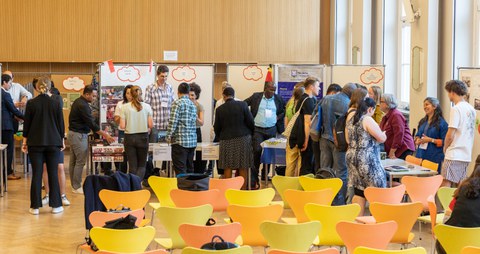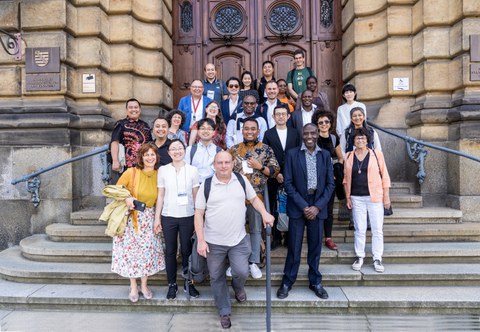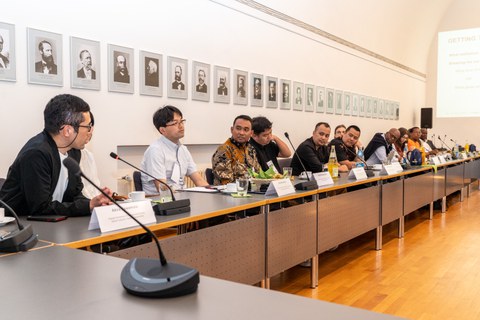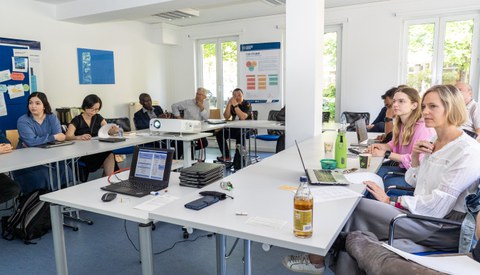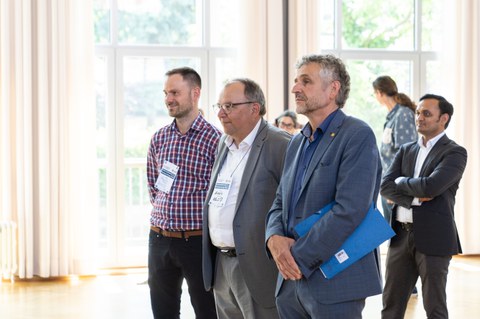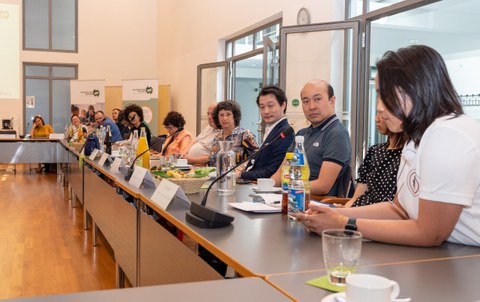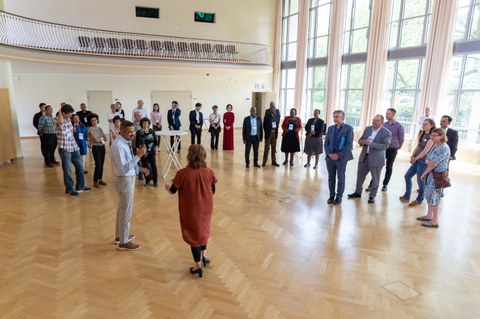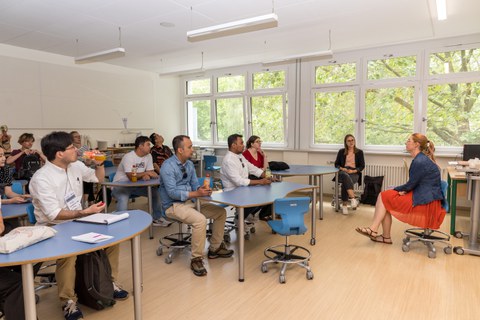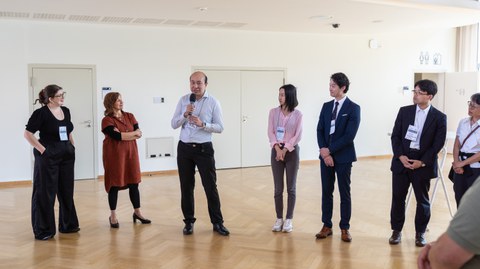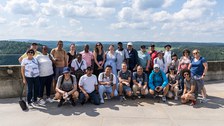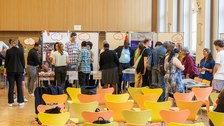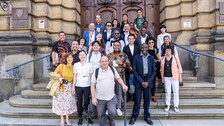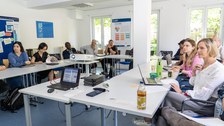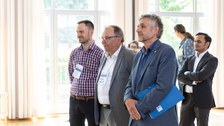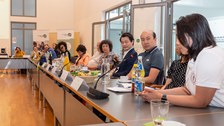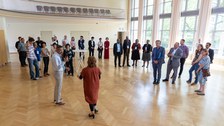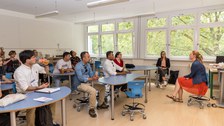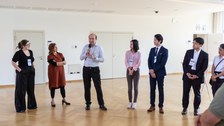Jun 19, 2023
International Networking Days to promote global educational exchange and future cooperation
School authorities and universities around the world are facing enormous challenges, such as the shortage of teachers, digitalization and the 2030 Agenda. The International Networking Days from 8 to 13 June 2023 brought together 30 international education experts, researchers and teachers from 14 countries (including Uganda, Israel, Indonesia, Mozambique, Japan, Australia and Hong Kong) to discuss current challenges in teacher education and future collaborations. "The Networking Days offered a unique opportunity to gain shared experiences through personal contact. This interpersonal contact creates trust and is an extremely important resource both when exploring new international cooperation partners and when consolidating existing contacts," emphasizes Maria Richter-Babekoff (International Affairs Advisor at the ZLSB). At the same time, the guests were given an insight into Saxon teacher training in the first and second phases, into schools in the Dresden area and into the Saxon education administration.
The "TEACHERMANIA" teacher training festival took place at the same time as the International Networking Days kicked off. Dr. Esther Namugumya (Dean of the School of Education, Nkumba University), Mustika Aji Hertanto (Catholic University of Saint Augustine of Hippo), Prof. José P. Castiano (Vice-Rector of the Universidade Pedagogica Maputo) and Prof. Axel Gehrmann (Managing Director at the ZLSB) discussed the topic of "Schools of the Future" on a panel.
Prof. Ronald Tetzlaff (Chief Officer Technology Transfer and Internationalization) presented internationalization at TU Dresden. Afterwards, the students had the opportunity to make contacts with the guests for possible stays abroad as part of their teacher training.
The cross-cutting topics of inclusion and heterogeneity as well as digitalization are the subject of the work of the Kolleg:innen worldwide. In the "Multi-Cultural and Inclusive Classrooms" workshop, the guests presented their research findings and experiences, including intercultural projects, joint schools in a Jewish-Arab context and the role of multilingualism for sustainable development. Another workshop entitled "Digital Technologies and Learning" dealt with current challenges and opportunities of digital learning in various countries. The contributions focused on the topics of data protection, the cost of digital media in the classroom, available tools and services and the speed of technological development.
Just like key competencies, the shortage of teachers is a challenge faced by almost all education systems. In the workshop "Teacher Profession and Teaching as Second Career", similarities and differences in teacher training were identified. The participants discussed the shortage of teachers, alternative training programs such as lateral entry and the demands that teachers face today. This resulted in many areas for future collaboration.
Afterwards, the participants were given an insight into the Saxon State Ministry of Culture. The meeting, which was led by Werner Glowka (Head of Department 3 - Principles/Vocational Schools) as well as Dr. Georg Ronny Müller and Nicolai Schenke, provided an inviting platform for a lively exchange of ideas and strategies, including the "Saxony 2030 - A State of Education" strategy project. At the State Office for Schools and Education(LASUB), Hans-Dieter Kretschmann (Head of Department) and Doris Kästner (Head of Training at the LASUB) presented the second phase of teacher training in Saxony. They gave the audience an overview of the organization, the duration of the preparatory service and the curriculum and invited them to an active exchange. Part of the group also visited the SchoolLab of the Faculty of Computer Science at TUD and learned about the German educational landscape with goals and challenges in the field of computer science education.
The ideas from the workshops were used in further rounds to derive future cooperation opportunities and scenarios for mobilities between the partner institutions. To this end, the participants presented exemplary projects that illustrate successful practical models. Kunto Nurcahyoko (Vice Rector of the Catholic University of Saint Augustine of Hippo) presented various focal points of the Borneo mobility program. Dr. Dr. phil. Julia Koinova-Zöllner (Lecturer and Erasmus+ Coordinator Faculty of Education) presented the "Inclusion International" concept to better support student teachers in motivating, planning and carrying out internships and study visits abroad. Dr. Esther Namugumya (Dean of the School of Education, Nkumba University) gave an overview of the education system and schools in Uganda and emphasized the intercultural and community-related benefits of international mobility.
Finally, the guests had the opportunity to visit various schools and institutions: At the Freie Evangelische Schule in Coswig, the MANOS Gymnasium and the 117th Primary School. Some of the group attended a workshop as part of the BQL lateral entry program at Dresden International University.
The International Networking Days were a great success and offered a valuable opportunity to strengthen global dialog and cooperation in teacher training and to provide new impetus.

